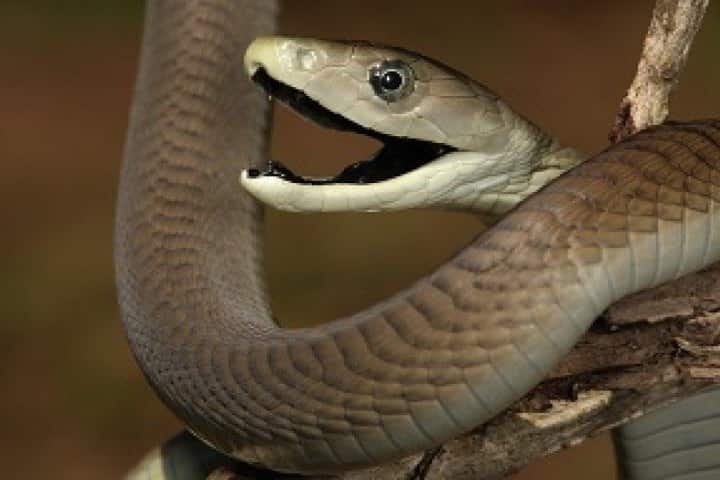To watch two of the world’s deadliest snake species, the black mambas, wrestling and fighting is not for the fainthearted. Nick Evans, a noted snake rescuer, filmed two of these reptiles measuring more than 8 feet in length in a fierce battle for more than 30 minutes in South Africa’s Queensburgh.
As per a livescience.com report, the bigger snake measuring 8.5 feet tried to pin down the neck of the second reptile which was 8.2-foot-long three times. Following this the latter surrendered and moved away. Evans, who shared the footage on his Facebook wrote that they were most probably fighting over a female.
What intrigued viewers was why these highly poisonous vipers didn’t bite each other? Explaining this, Evans wrote: “Male mambas don’t bite each other. They wrestle till one surrenders.”
Regarded as one Africa’s deadliest snakes, the poison of black mamba targets the connection between their prey’s nerves and muscles causing rapid paralysis. The venom can kill a human in 20 minutes.
However, John Dunbar, an Irish Research Council postdoctoral fellow at the Venom Systems lab at the University of Galway in Ireland, informed Live Science that he discovered them to be “shy, nervous snakes”. They attack a human being only when threatened or startled.
The footage by Evans shows “plaiting combat” as per Evans which usually happens in the presence of a female. The two males try to plait their bodies around each other to dominate and get the approval of the female.
Explaining it, he said: “Rather than simply biting and subduing [their opponent] with a fatal dose of neurotoxic venom, the aim is purely to win by [forcing] submission. [I]t’s a demonstration of stamina and physical strength, not chemical warfare.”
He added: “Venom is a precious resource reserved for catch[ing] prey and for defence.”
Apart from this, the snakes also have a mild immunity towards the poison of their own species. While feeding or mating when bit by a member of their species, their antibodies are able to tackle the toxins. Dunbar, however, clarified that this does not mean that they are completely safe as at times they may die if the dose of the venom is high.
Summing up, Dunbar observed: “It’s complicated, and probably why the males avoid biting during these combat rituals, as strength and stamina are a more appropriate measure for a female to judge their success by. The losing male usually leaves with no injuries, perhaps just a dent in his pride, while the winner will have secured mating access to the female.”




















